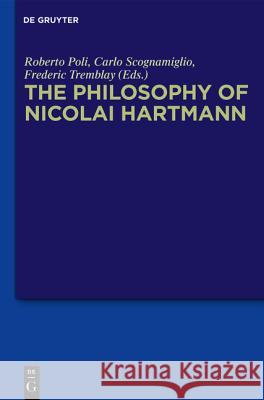The Philosophy of Nicolai Hartmann » książka
The Philosophy of Nicolai Hartmann
ISBN-13: 9783110254174 / Angielski / Twarda / 2011 / 310 str.
Nicolai Hartmann was one of the most prolific and original, yet sober, clear and rigorous, 20th century German philosophers. Hartmann was brought up as a Neo-Kantian, but soon turned his back on Kantianism to become one of the most important proponents of ontological realism. He developed what he calls the "new ontology," on which relies a systematic opus dealing with all the main areas of philosophy. His work had major influences both in philosophy and in various scientific disciplines. The contributions collected in this volume from an international group of Hartmann scholars and philosophers explore subjects such as Hartmann's philosophical development from Neo-Kantianism to ontological realism, the difference between the way he and Heidegger overcame Neo-Kantianism, his Platonism concerning eternal objects and his interpretation of Plato, his Aristotelianism, his theoretical relation to Wolff's ontology and Meinong's theory of objects, his treatment and use of the aporematic method, his metaphysics, his ethics and theory of values, his philosophy of mind, his philosophy of mathematics, as well as the influence he had on 20th century philosophical anthropology and biology.
Nicolai Hartmann was one of the most prolific and original, yet sober and rigorous, 20th century German philosophers. He engaged in and influenced almost all areas of philosophy. The papers collected in this volume explore themes such as his philosophical development from Neo-Kantianism to realism, his Platonism, his relation to Wolff and Heidegger, his use of the aporematic method, his metaphysics, his theory of values, his philosophy of mind, his philosophy of mathematics, and the influence he had on anthropology and biology.











